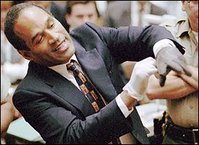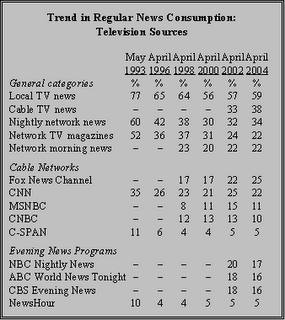What About Us?
ES
USA Today says the job outlook for recent grads is good, but they focus on IT jobs. Many of us will be done in December or June of next year at the latest. What can we look foward to, if anything as aspiring journalists? We need to know a little bit of everything. But if certain areas are "hot" right now, shouldn't we jump on the bandwagon- get in where we fit in? I think we may have to look at more specialized types of reporting like sports, business and...........yep, IT. While we may or may not want the 'conventional' reporting job, that market may not be booming at the end of this year or the beginning of next. Business publishers like United Communications Group, newspapers like the Wall Street Journal, magazines like Crain's and other avenues may be our meal ticket.
To view this article go, here!
































